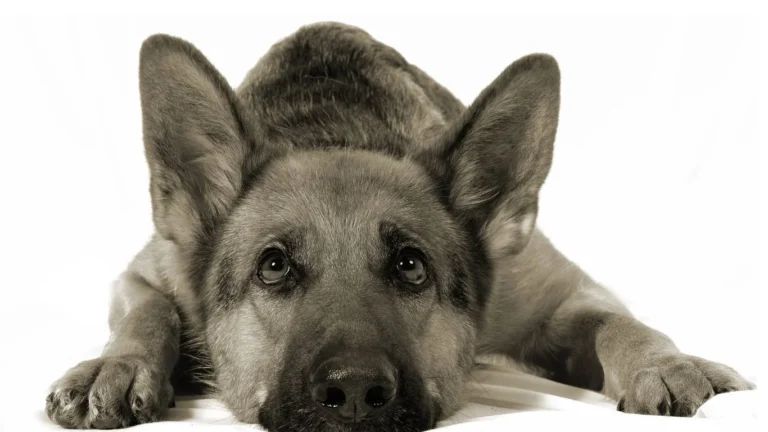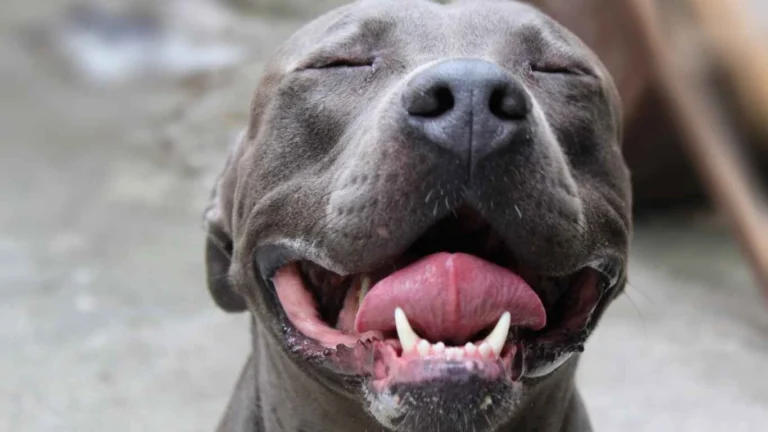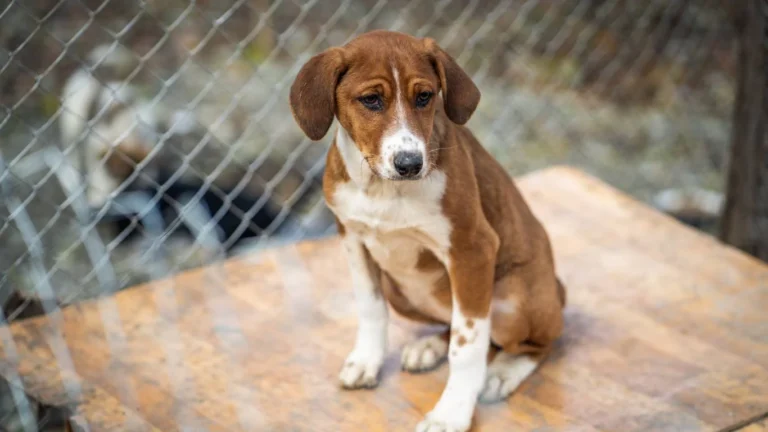10 Clear Signs of Respiratory Infections in Dogs You Shouldn’t Ignore
If you’re a dog parent or someone working in animal care, chances are you’ve seen your furry friends go through different health issues. One of the more concerning conditions you might face is a respiratory infection in dogs. As a Veterinary Assistant with a focus on nutrition, I’ve had the chance to observe firsthand how these infections can affect dogs of all breeds and sizes. Recognizing the signs of respiratory infections in dogs early on can make all the difference in treatment and recovery. In this blog, I’ll walk you through the signs you should look for, some common causes, and the steps you can take to help your dog breathe easier again.
What Are Respiratory Infections in Dogs?
Respiratory infections in dogs affect the lungs, nasal passages, and airways, leading to symptoms that can vary from mild to severe. These infections are often caused by bacterial, viral, or fungal agents, and in some cases, they can even be the result of environmental factors like smoke, allergens, or pollution. While some respiratory issues are more common in certain breeds or age groups, no dog is completely immune to these infections.

Common Causes of Respiratory Infections in Dogs
There are a number of factors that can contribute to respiratory infections in dogs. As I’ve seen at the clinic, some of the most common causes include:
- Bacterial Infections: These can develop when harmful bacteria, like Kennel Cough, invade the dog’s respiratory system. This highly contagious infection typically spreads in places where dogs gather, like kennels, dog parks, and grooming salons.
- Viral Infections: Viruses like Canine Influenza or Canine Parainfluenza are often behind respiratory issues, especially if the dog has weakened immunity or exposure to infected dogs.
- Fungal Infections: Though less common, fungal infections such as Aspergillosis can affect dogs, particularly those living in humid environments or with compromised immune systems.
- Allergies or Irritants: Environmental allergens, like pollen, smoke, or dust, can cause inflammation in a dog’s airways, leading to coughing and breathing difficulties.
- Underlying Health Conditions: Dogs with heart disease, collapsing trachea, or other chronic conditions may be more susceptible to respiratory infections or experience worsened symptoms.
Signs of Respiratory Infections in Dogs
Identifying the signs of respiratory infections in dogs is crucial for early diagnosis and treatment. Many dogs can be quite stoic, so it’s important to be vigilant and pay attention to even subtle changes in their behavior. Based on my experience working in animal care, I’ve compiled a list of key symptoms that often point to a respiratory infection.

1. Persistent Coughing
A persistent cough is one of the most obvious signs that something is wrong with your dog’s respiratory system. This could sound like a dry, hacking cough, similar to the sound of “Kennel Cough,” or it might be more of a wet, phlegmy cough if there’s an infection deep in the lungs. Keep in mind that coughing can sometimes be confused with other conditions like allergies or heart disease, so it’s essential to pay attention to the other symptoms as well.
2. Labored Breathing
If your dog is struggling to breathe, you may notice their chest expanding and contracting rapidly. They may also be more reluctant to exercise or go for walks due to the effort it takes to catch their breath. This is often a sign of a more serious respiratory issue, and it’s something that should be addressed as soon as possible. In some cases, you might even see your dog’s gums or tongue turn slightly blue, which is a sign of oxygen deprivation.
3. Nasal Discharge
Dogs with respiratory infections often have nasal discharge, which can vary in color from clear and watery to thick and greenish or yellow. If your dog has a constant runny nose, especially if it’s accompanied by coughing, it’s a good indication that there’s an underlying infection. You might also notice that your dog is sneezing more than usual, which can indicate irritation in their nasal passages.
Changes in Appetite and Behavior
Along with physical symptoms, respiratory infections can also affect a dog’s overall behavior and appetite. A dog with a respiratory infection may become lethargic or even depressed, not interested in playtime or their favorite activities. Some dogs may even stop eating or drinking due to the discomfort they’re experiencing while breathing. It’s important to encourage your dog to stay hydrated, especially if they aren’t eating much.

4. Fever and Increased Heart Rate
A fever often accompanies a respiratory infection. If your dog feels warmer than usual, or if you notice them feeling unusually hot to the touch, it could be a sign of infection. Along with fever, you might notice an increased heart rate, which is the body’s natural response to illness. If these symptoms are present along with labored breathing or coughing, it’s time to consult your vet.
Why Early Detection Matters
As I mentioned earlier, early detection is crucial. Respiratory infections in dogs, if left untreated, can lead to serious complications, including pneumonia or, in extreme cases, death. In my experience, the quicker a dog is treated, the better the outcome. A vet can determine whether the infection is viral, bacterial, or fungal, and recommend the appropriate treatment. Sometimes it’s just a matter of providing rest and supportive care, while other times antibiotics or antiviral medications may be needed.
While respiratory infections in dogs are common, they’re also manageable, especially when caught early. If you notice any of the signs mentioned above, don’t hesitate to reach out to your vet. They’ll help guide you on the next steps to take, and together, you can get your dog back to their happy, healthy self.
Treating Respiratory Infections in Dogs
Once you’ve recognized the signs of respiratory infections in dogs, the next step is figuring out how to treat them. As a Veterinary Assistant, I’ve worked with many different treatment options, and it’s crucial to remember that the treatment plan can vary based on the severity of the infection and the underlying cause. Whether it’s a simple viral infection or something more complex, there are a few general approaches that can help your dog recover faster.

1. Veterinary Diagnosis
Before jumping to any treatments, it’s essential to visit a vet for an accurate diagnosis. I’ve seen cases where people mistakenly treat their dog for allergies or other conditions when they actually had a respiratory infection. A thorough examination, which may include blood tests, X-rays, or a nasal culture, helps the vet determine the exact cause of the infection. Understanding whether the infection is viral, bacterial, or fungal is key to deciding the best course of action.
In some cases, your vet may recommend supportive care, which includes hydration and keeping your dog comfortable while their body fights the infection. In more severe cases, medications may be needed to address the underlying infection.
If your dog’s respiratory infection is caused by bacteria, your vet will likely prescribe antibiotics to help clear the infection. For viral infections, antiviral medications may be used, although these can be less common depending on the virus involved. For example, a dog diagnosed with Canine Influenza may be given antiviral medications to help reduce the severity and duration of symptoms.
Based on my experience, it’s important to follow the prescribed medication schedule exactly as directed. Skipping doses or stopping the medication early can lead to the infection coming back, and sometimes it can even lead to the development of antibiotic-resistant bacteria. Always finish the entire course, even if your dog starts feeling better.
3. Cough Suppressants and Other Medications
If your dog’s infection is causing a lot of coughing, your vet might recommend a cough suppressant. These medications help soothe the throat and reduce the frequency of coughing, making your dog more comfortable. However, it’s important not to self-medicate with over-the-counter products, as some human medications can be toxic to dogs. Always check with your vet before giving your dog any new medication, even if it’s labeled as safe for pets.
Additionally, if your dog is struggling to breathe, the vet may prescribe bronchodilators to help open up the airways. These can help improve airflow and make it easier for your dog to breathe, especially if the infection is causing inflammation in the lungs or airways.
Home Care and Comforting Your Dog
Along with professional treatment, there are things you can do at home to help your dog feel more comfortable while they recover. When my own dog was ill with a respiratory infection, I remember how difficult it was for both of us. Seeing her struggle to breathe or cough constantly made me want to help as much as I could. Here are a few tips that can help make the healing process a little smoother for your dog.
1. Keep Them Warm and Cozy
One of the first things I recommend to pet owners is to make sure your dog has a warm, quiet, and comfortable place to rest. Respiratory infections can leave dogs feeling exhausted, so it’s essential to give them a peaceful environment where they can sleep and recover. I always make sure my dog has a soft blanket and a bed away from drafts or cold air to help her stay cozy.
2. Encourage Hydration and Light Meals
When a dog has a respiratory infection, they may not feel like eating or drinking much, but staying hydrated is vital for their recovery. I’ve found that offering them small amounts of water frequently can encourage them to drink. If your dog isn’t eating, try tempting them with a bit of their favorite wet food or some low-sodium broth to get their appetite back. You can also add a little bit of water to their dry food to make it easier for them to swallow.
In more severe cases where your dog refuses to eat or drink, your vet may recommend subcutaneous fluids to keep them hydrated. But generally, offering your dog small meals and water throughout the day will help their body fight off the infection.
3. Keep Their Environment Clean
Air quality plays a big role in helping your dog breathe more easily. During a respiratory infection, it’s crucial to avoid exposing your dog to irritants like smoke, dust, or strong odors. Consider using an air purifier to keep the air clean, and make sure their resting area is well-ventilated. Keeping their environment clean will help them breathe better and prevent additional respiratory irritation, which can prolong recovery.
Preventing Respiratory Infections in Dogs
While some respiratory infections in dogs are inevitable, there are steps you can take to reduce the risk of your dog getting sick. As a veterinary professional, I’ve learned that prevention is just as important as treatment when it comes to these kinds of infections. Taking the right precautions can save your dog a lot of discomfort and you a lot of stress.

1. Vaccinations
Vaccines are one of the best ways to protect your dog from respiratory infections. Vaccines like the one for Canine Influenza and Kennel Cough can help reduce the risk of your dog contracting these infections. I can’t emphasize enough how important it is to stay up to date on your dog’s vaccinations, especially if you plan on taking them to public places like dog parks or boarding facilities. In my experience, many respiratory infections can be prevented by keeping your dog’s vaccination schedule on track.
2. Proper Hygiene and Care
Good hygiene is also critical in preventing the spread of respiratory infections. Regularly cleaning your dog’s bedding, toys, and food/water bowls can help reduce the likelihood of infections. If your dog has been in contact with other dogs, especially in public or high-risk areas, it’s a good idea to wipe them down with a pet-safe disinfectant. Keeping your dog’s environment clean helps to minimize the risk of infection.
3. Limit Exposure to Sick Dogs
If your dog is showing signs of respiratory illness, it’s important to keep them away from other dogs until they have fully recovered. I’ve seen how quickly infections can spread in places where dogs are in close contact with each other. If your dog has a compromised immune system, such as a puppy or senior dog, it’s even more critical to limit exposure to sick animals. Always monitor your dog’s health closely, especially if you’ve recently been to a place where other dogs congregate.
Monitoring Your Dog’s Recovery
Throughout the recovery process, it’s essential to monitor your dog’s progress. Keep an eye on their appetite, energy levels, and breathing. If you notice that their symptoms are worsening or they’re not responding to treatment, don’t hesitate to contact your vet for further guidance. In some cases, a follow-up appointment may be necessary to ensure that the infection has cleared up completely.
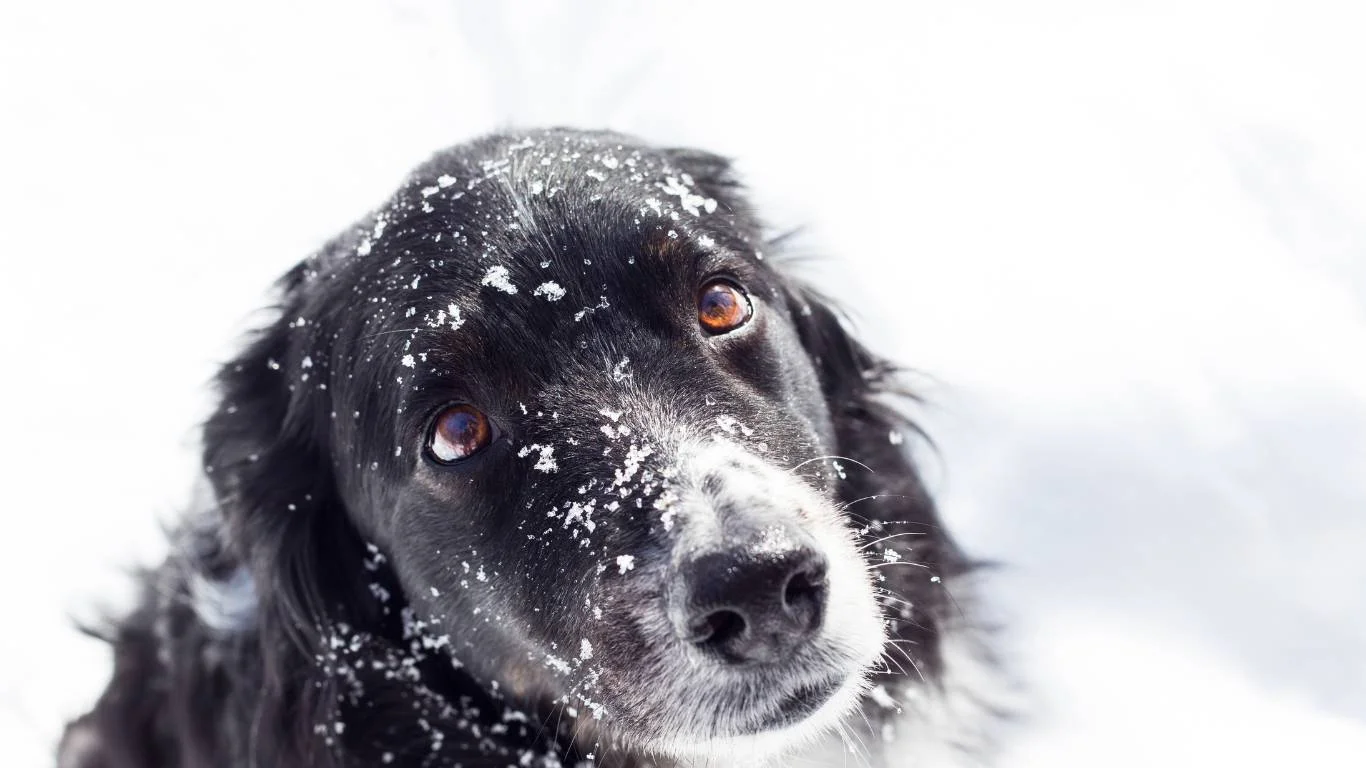
As a pet owner, it can be stressful to watch your dog struggle with illness. But with the right care, love, and treatment, most respiratory infections are treatable, and your dog will be back to their old self in no time. Keep in mind that early detection and treatment are key, and don’t hesitate to reach out to your vet if you have any concerns.
When to Seek Emergency Care for Respiratory Infections in Dogs
While most respiratory infections in dogs can be treated effectively with proper care and medication, there are times when a more urgent response is necessary. As a Veterinary Assistant, I’ve seen situations where things could have been handled earlier to prevent more serious complications. It’s crucial to know when your dog’s condition warrants emergency care. Here are the signs that should raise red flags:
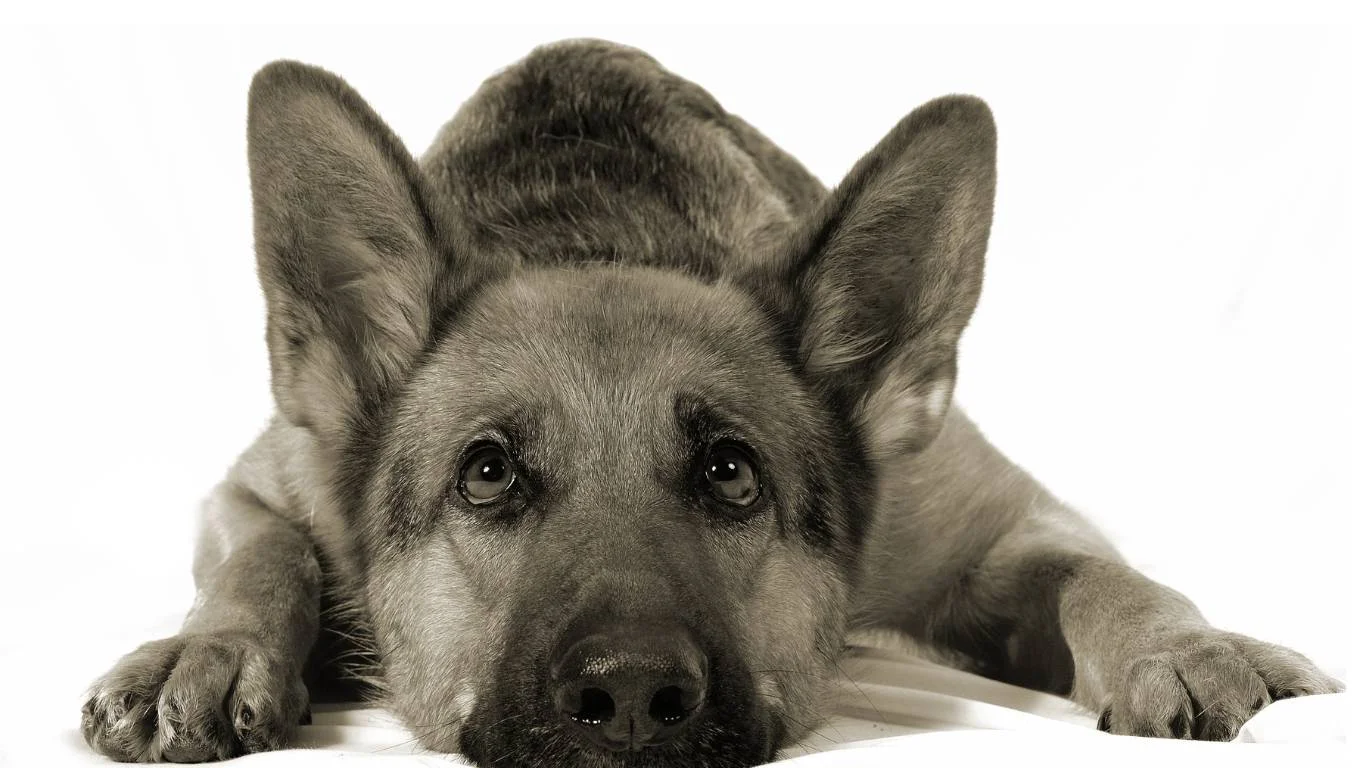
1. Difficulty Breathing or Cyanosis
If your dog is struggling to breathe, you might notice their chest expanding and contracting more rapidly than normal. In severe cases, you may even observe their gums or tongue turning a bluish color, a condition known as cyanosis, which indicates that they’re not getting enough oxygen. If you notice these signs, it’s critical to get your dog to a vet as soon as possible. Lack of oxygen can lead to severe complications, including organ failure.
2. Severe Coughing Fits
While a mild cough is common in respiratory infections, persistent or severe coughing fits can be a cause for concern. If your dog is coughing uncontrollably or unable to catch their breath, this may signal a more serious infection or a complication like pneumonia. I remember a case where a dog’s coughing would not subside, and it ended up being a sign of pneumonia, which required immediate treatment. If you notice your dog coughing non-stop, it’s time to get them checked out.
3. Loss of Appetite and Lethargy
A loss of appetite and extreme lethargy can indicate that the infection is affecting your dog’s overall health. If your dog is not eating or drinking, and they’re too weak to stand or walk, they may be in need of more intensive treatment. These symptoms can quickly lead to dehydration and malnutrition, which can further complicate recovery. In these situations, it’s always better to err on the side of caution and consult your vet right away.
Long-Term Effects of Respiratory Infections in Dogs
Although many dogs recover well from respiratory infections with proper treatment, some can experience long-term effects. As I’ve seen in my work, some dogs may have lingering symptoms even after the infection has cleared up. These can include a mild cough or decreased exercise tolerance, and in rare cases, more serious complications can arise.
1. Chronic Cough
A chronic cough can sometimes persist even after a dog has recovered from the acute phase of a respiratory infection. This can be especially true for breeds that are prone to respiratory issues, like Bulldogs or Pugs. In these cases, the cough may become a nuisance, but it’s generally not a sign of ongoing infection. However, if the cough is accompanied by other symptoms like wheezing or labored breathing, it’s essential to check in with your vet to rule out any underlying issues.
2. Reduced Exercise and Activity Levels
Some dogs may experience a reduced tolerance for exercise after a respiratory infection, especially if the infection was severe. This can be frustrating for active dogs, but it’s important to allow them time to rebuild their strength. In my experience, slow, gradual increases in activity levels can help your dog regain their stamina without overexerting themselves. Always monitor your dog closely, and if they seem to be struggling with normal activities, it’s important to consult your vet.
3. Possible Long-Term Lung Damage
In rare cases, severe or untreated respiratory infections can lead to long-term lung damage, especially if the infection spreads to the lower respiratory tract or causes pneumonia. This is why early treatment is so important. While most dogs recover fully, some may experience ongoing respiratory issues, including difficulty breathing or recurring infections. If you suspect any long-term effects, your vet may recommend X-rays or other tests to assess lung health and ensure proper recovery.
References for Further Reading
For those looking to dive deeper into the topic of respiratory infections in dogs, here are some reputable sources where you can find more information:
- PetMD – Comprehensive pet health information.
- American Kennel Club – Information on dog breeds and common health issues.
- National Institutes of Health (NIH) – Resources on medical research and health topics.
- Health.com – General health advice, including pet health.
Disclaimer
While I’ve shared my personal experiences as a Veterinary Assistant and the knowledge I’ve gained over the years, please note that this article is for informational purposes only. Every dog is unique, and health issues can vary greatly. If you suspect your dog may have a respiratory infection or any other health concerns, I highly recommend seeking professional advice from a veterinarian. Only a qualified veterinary professional can provide a diagnosis and recommend the most appropriate course of treatment for your pet’s specific needs.
Taking care of a sick dog can be stressful, but with the right treatment and care, most dogs make a full recovery. If you have any doubts about your dog’s health, don’t hesitate to reach out to your vet. After all, you want to make sure your dog is back to their playful self as soon as possible!

